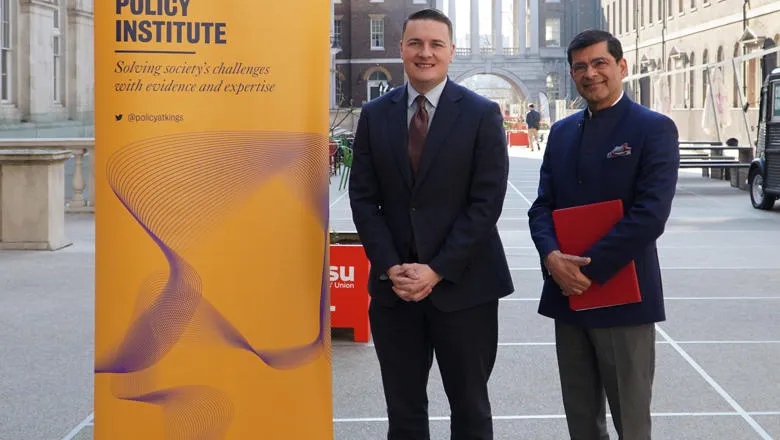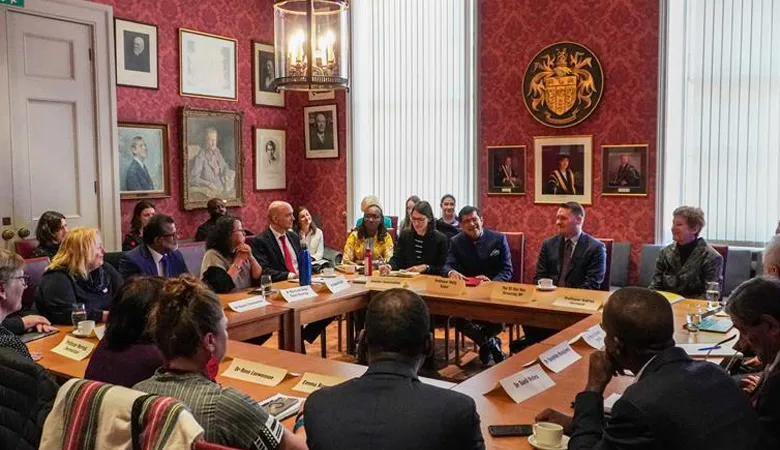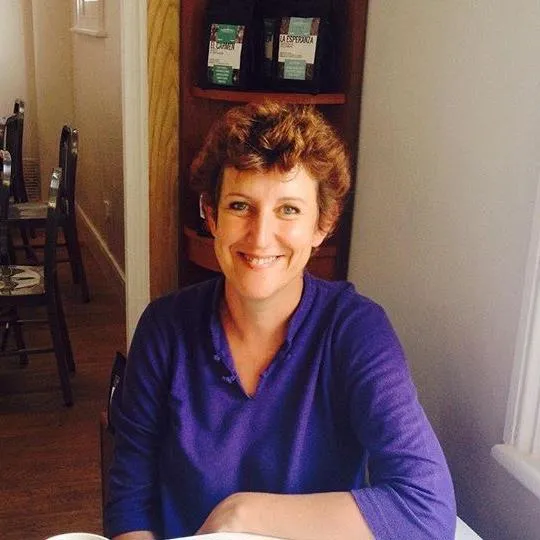The new NHS 10 Year Plan reflects what they heard: a commitment to the kind of community-based primary health care that’s driven real change in health outcomes around the world.”
Professor Andrea Cornwall, Professor of Global Development & Anthropology in the Department of International Development at King’s
11 July 2025
Lessons from international experience contribute to shaping NHS 10 Year Plan
An international roundtable hosted by King’s played a part in shaping the government’s NHS 10 Year Plan

An international roundtable hosted by King’s on lessons for the NHS played a part in shaping the government’s NHS 10 Year Plan announced last week.
The NHS 10 Year Plan outlines an ambitious agenda to move care closer to home, reduce hospital admissions, and empower communities to take a more central role in health delivery.
There will be new ‘Neighbourhood Health Plans’, which will support the shift from hospitals to community-based care; a model already established in places as varied as Brazil, Canada and Costa Rica, all of which offer valuable lessons on how to successfully deliver integrated, people-centred primary health care.
These lessons were shared with Wes Streeting MP, Secretary of State for Health and Social Care, and the NHS 10-Year Plan team at an international roundtable hosted by the Policy Institute at King’s in March, in partnership with the Institute of Development Studies and the Department of Health and Social Care (DHSC).
The roundtable brought together former health ministers, state secretaries, and academic experts from Brazil, Canada, Chile, Costa Rica, India (Kerala), Japan, New Zealand, South Africa and Zimbabwe.
Chaired by Professor Andrea Cornwall, Professor of Global Development & Anthropology in the Department of International Development at King’s, the roundtable explored how neighbourhood primary care and prevention teams can drive better health outcomes, reduce costs, and improve equity.
“When I wrote to Wes Streeting offering to convene a conversation on learning from international experience to feed into the new NHS 10 Year Plan, I didn’t expect him to answer. But I was wrong. He and his team at the DHSC took me up on the offer and were genuinely interested in what Britain could learn from other countries,” said Professor Cornwall.

One standout example where community-based primary healthcare has driven positive change is in Brazil, with its Community Health Worker (CHW) model.
With 300,000 CHWs serving 145 million people, the model has led to reduced emergency visits and increased uptake of preventive services. It also inspired the UK’s own version of a Community Health and Wellbeing Workers (CHWWs) model, which has been rolled out in several UK locations already, with plans for national scale-up.
“Through building trusted relationships, and regular home visits, CHWWs ensure all residents are supported, whatever their needs are”, said Dr Matthew Harris, of Imperial College London, who brought the Brazilian model to the UK as a GP 12 years ago.
The CHWWs have become the visible face of the NHS in the community – “the equivalent to the ‘bobby on the beat’”, as King’s Jennifer Kherlakian Constantine, whose research is on public policy exchange between Britain and Brazil, put it.
Speaking in the House of Commons as he announced the NHS 10 Year Plan, Wes Streeting MP, Secretary of State for Health and Social Care, said: “If community health teams can go door-to-door to prevent ill-health in Brazil, we can do the same in Bradford. We know that we can build the neighbourhood health service, because teams in Cornwall, Camden, Northumbria, and Stratford are already showing us how to do it. We will take the best of the NHS to the rest of the NHS. We will apply to best examples of innovation from around the world to benefit people here at home. Above all else, we will give power to the patient.”
Research shows that that universal access to high-quality community care, supported by data-driven population health planning, is achievable with consistent investment and political will, even in resource-constrained settings.
“We know community-led health services can work internationally, and we know they can work here in the UK,” said Dr Alex Shankland, Research Fellow, Institute of Development Studies.
“We hope that the Secretary of State will follow through on the important intention set out in the NHS 10 Year Plan by supporting genuine devolution of decision making and resources to frontline health systems managers, local councils, and, crucially, local community groups.”
Professor Shitij Kapur, Vice-Chancellor and President of King’s College London said: "It was a privilege for King’s to host the roundtable with the Secretary of State for Health and Social Care earlier this year, and I am delighted that the insights shared have contributed towards shaping a vision for a more resilient, equitable and community-focused NHS."
Meeting today’s healthcare challenges requires new ways of working, and this is a great example of academic experts and government ministers coming together to shape community-based healthcare models, inspired by international best practice”
Professor Shitij Kapur, Vice-Chancellor and President of King’s College London

